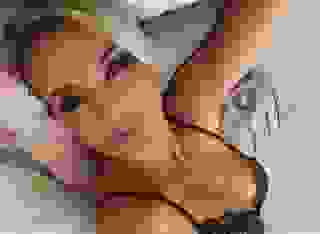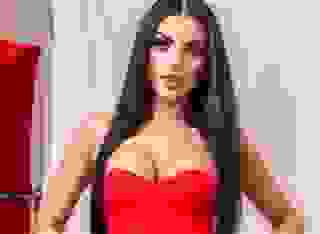Note: You can change font size, font face, and turn on dark mode by clicking the "A" icon tab in the Story Info Box.
You can temporarily switch back to a Classic Literotica® experience during our ongoing public Beta testing. Please consider leaving feedback on issues you experience or suggest improvements.
Click hereSo naturally, trouble found us.
The scouts rode in bright and early the next day to report a big Indian encampment in the next river basin west, which was the valley of the Little Big Horn. Moving there was completely counter to what Terry had told Custer to do. Custer had been ordered to scout the Rosebud, not chase off after reports of hostiles in another river valley.
If Custer had done what Terry told him, he would have eventually run into Crook. Things would have been different if he had. But that wasn't Autie's style. He smelled glory. So, he took off headed west.
All that day we worked our way over hill and dale, looking for Indians. It was extremely hot and dry in the arid high-plains and most of us were ready to drop.
I was thinking that Gibbon owed me a BIG favor for all the grief. It was a total waste of my time. Custer never acknowledged me. So, I was useless to him. And his sycophants spent most of their time looking thoroughly amused whenever I said anything.
Boyer was friendly. Of course, we knew each other from all the time we had spent in that neck of the woods. He said that Custer was determined to do the same thing to the village that we were chasing, as he had done to Black Kettle; meaning total annihilation.
The night of the 24th, we camped southeast of the Little Big Horn Valley while Custer and the scouts surveyed the situation. He came back full of himself.
There was a big village sitting on the river. And, it looked like it might contain the entire Sioux Nation. If Custer had thought about what that implied, he might have been with us today. But thinking wasn't Autie's strong suit.
After dinner, the Officers had a little confab. I joined them just to see what was going on. All of Custer's little gang wanted to attack the next morning. They were afraid that the Indians would get away if they didn't.
I said, "Didn't Terry order you to push the Indians toward him, not attack them by yourself?" Reno and Benteen were nodding their heads vigorously in agreement.
The entire clan turned hostile eyes toward me. Custer said with condescension, "We've finally got them where we want them and I'm not going to let them slip through our fingers. Terry's too slow and cautious. They'll get away If we wait for him." His little claque all nodded agreement.
What Custer was really saying was that he wanted all of the glory for himself. I heard him mutter under his breath, "If we polish them off tomorrow I'll still have time to announce my victory at the Centennial Exposition in Philadelphia."
So that was it. He was hurrying things along because he wanted to kick off his political career at America's 100-year anniversary celebration. We were attacking tomorrow because Custer needed to hop a train , in order to get back East on time.
My Irish temper flared. I said, "This isn't the Washita Autie. There aren't going to be old men, women and children down there. There are going to be Sioux and Cheyenne warriors, the best they've got. And there's gonna be a whole lot of them."
He and his gang laughed contemptuously. He said, "Indians won't stand up to cavalry. The minute they see us they're going to turn tail and run. I'm more worried about the redskins gettin' away, than I am about any of them fightin' us."
Then he got a shrewd look and said conspiratorially, "That's why we're going to grab their women and children first. They'll come back and fight if we have their families."
I thought to myself, "This guy's totally clueless. His only concept of Indian fighting is wiping out defenseless villages. Going after Ogallala, Hunkpapa, or Brule families, is going to make their warriors nuts."
I said, "You've never seen Lakota Aki'cita, or Cheyenne dog soldiers in action. I have. They're born on a horse and brave beyond reckoning. If we threaten their women and children, they won't stop until we're all dead."
Custer laughed again and said, "Well, if you're scared you can ride out of here any time you want."
That put me in a difficult spot. I'd endured this clown and his delusions for two days. That time would all be wasted, if I wasn't with him, when we joined up with Gibbon.
I didn't like the idea of attacking my wife's people. But, I thought maybe I could convince Custer to be a little more humane afterward. That was a really stupid assumption; as the next day proved.
Just after sun-up, I was riding with Myles Keogh. I liked Keogh. He was my kind of Irishman. He was handsome and charismatic, with a glint in his eye for the ladies and that classic Irish sense of humor.
He was wearing the medals that the Pope had given him for his services in the Vatican's Army. That happened prior to his coming over to serve in our Army. His men loved him.
Custer had split his command in two. He sent Reno's 300 troopers to attack a huge collection of tepees in a bend in the river about three miles in front of us. I could see the village in the distance, in the early morning heat haze. It was laid out in neat circles. There were so many tepees that it looked like New York City. I had my first sense of foreboding. But I rode along anyhow.
Custer took five companies up into the hills and ridges across the river. Keogh's company was in that section. It was a bright and sunny Sunday morning and getting hot. The choking dust from our movements was oppressive and it was hard to see much in front of us, as the long line of horsemen rode along the ridge-line of the bluffs.
Custer's rashness motivated some men. But most of his command, including his senior officers, didn't trust him. So, a disquieting number of troopers were dismounted and leading their seemingly exhausted horses as the column passed.
I'd seen that trick a lot during the war. I'd even pulled it once myself, at Cold Harbor. It's a handy way to avoid a fight, when you don't have any confidence in the people in charge. In the end, those fellows were the lucky ones., They eventually joined up with Reno, and lived.
The heat was so oppressive that Custer had taken off his buckskin shirt. And he was acting crazy. He kept yelling to W. W. Cooke, his aide-de-camp, that he, "Finally, had those savages." Then he would spur ahead excited. My foreboding increased. This guy was not taking any of the danger seriously.
Down below, it looked like Reno had launched his charge. There was a seething mass of Indian warriors streaming out of the village. The last thing I saw as we rode up the bluffs and around a promontory, was that the line of Indians, who clearly outnumbered Reno's forces three, or four to one, were beginning to lap around his flanks.
At which point, Reno appeared to dismount his men to form a skirmish line. That was not what Custer had planned. Reno was supposed to drive right through the Indians and directly into the village. It would provide the necessary anvil for Custer's hammer. It was obvious that Autie had way underestimated the number and determination of the warriors in that encampment.
I could hear the firing from Reno's group as we moved along on the bluffs. So far, we were undetected. Keough, who was an experienced hand yelled, "Reno's in trouble. We ought to double back to help him." But, Custer ignored him. Autie was a man on a mission.
His objective was to keep the Indians from running away. He would do that by threatening their women. The problem was that, the only running that the Indians were doing was TOWARD the fight. Nevertheless, with all evidence to the contrary, Custer pressed on. The sounds of the firing faded behind us.
We had gone a couple of miles further, when we came to a coulee that allowed access straight down into the middle of the encampment. Custer had clearly planned to attack from the far end of the village, to drive the Indians back toward Reno. But, It, was a much bigger village than he had expected.
Be that as it may, he started the charge down the Coulee, anyhow; right into the middle of the village. I wasn't involved because Custer had split his command again, and I was sitting up on the bluffs with Keogh, who was commanding the second group. A few warriors met Custer at the river and the charge stopped right there.
I still don't know why they stopped; and then retreated up the bluff to our right. It looked like somebody shot both Custer and his guidon bearer right off their horses. That might have been the reason, Custer made a big splash, as he hit the water. Then a bunch of his men ran to retrieve him. They left the guidon bearer where he fell.
The other reason might be that Custer saw the huge force of Indians who were running along the river bank and through the village. They appeared to have disposed of Reno and were returning now to confront him. Whatever the reason, the charge stopped right there, and none of the participants lived to say why.
I was still calm. It seemed like we had things under control. There were nearly 250 well-armed and well-trained cavalrymen around me. Custer was moving toward our right, up the bluffs in the direction of the ridge line. Keogh urged his unit in that direction as well.
We were clearly going to dig-in on the bluffs and let the Indians throw themselves on our rapid firing Springfield '73 repeaters. But the Indians were coming on so fast that we didn't have the time to consolidate into one defensive position.
We might have survived. If we had been able to get all our soldiers onto one hill, like Reno did. But Custer had signed his own death warrant when he divided his force again. So, Custer's group; Smith, Yates and Tom Custer were on one promontory. Keogh and Calhoun were on another; perhaps 100 yards away.
Most of Tom Custer's troop was with Keogh, since Tom was with his brother. So, we dug in with Calhoun's L and Tom Custer's C troop forming a skirmish line to our front. Keogh's I troop was behind with the horses. Cavalry tactics dictate that every fourth man hold the horses of the other three men. So, Keogh's group was bigger than the thin blue line in front of us.
The Indians were swarming like bees. But, we should have been able to make short work of them if we had had a clear field of fire. The problem was that, the bluff had all sorts of ravines and crevices and the warriors were working their way through them like they do when they're hunting buffalo. They were invisible until they popped up at the last second to shoot us at point-blank range.
Even worse, the Springfield's were starting to jam, like they always did when they got hot. So, the volume of our fire was not what it should be. Worse, the Indians appeared to be using Sharps and Henry's, which were both longer ranged, and more rapid fire than ours.
The skirmish line under "Handsome Jim" Calhoun fired a couple of hefty volleys. He had promised Custer, who was his brother-in-law, that he wouldn't let him down. He didn't. Calhoun's fight was the only organized resistance on that day. The rest was just soldiers taking individual pot shots through the enveloping haze of black powder gunsmoke.
The skirmishers were overwhelmed before they could get a third volley off. There were just too many warriors and they simply overran our boys. There was a frenzy of shooting, stabbing and hatcheting. Then the Indians turned their attention to the last of us.
Everybody in the circle around Keogh was banging away except me. I wasn't armed, and I had no desire to shoot at those people, even to save my own life. They were just reacting to an unprovoked attack on their village. Everybody knew that. Nobody expected any mercy.
The troopers had shot enough of the horses that they had formed a breastwork of sorts. Most of the troopers hunkered down behind the dead horses. Time had slowed, and I was oddly at peace, I knew that I was going to die. But I had led a good life with a wonderful woman and she would be well-set-up in my absence. Sooner or later we all pass-on.
There was a final rattle of gunfire and a gang of figures appeared out of the powder smoke. The Indians were rolling up our flank from our right, which was in Custer's direction. The soldiers around me all turned and fled, trying to mount as they did.
I didn't see who fired the shot. But I felt an intense pain in my right shoulder and everything went black. My last words were "Anovoo'o."
***** I awoke to a familiar voice yelling something in Cheyenne. There was still chaos all around me. There was a terrible pain in my shoulder. But I was alive. I was lying on the grass, where I fell.
Somebody was standing protectively over my body. It was a woman and she would occasionally shout a fierce warning to anybody who approached us.
The firing had diminished to occasional shots. All that you could hear were the cries of the wounded and the occasional "Hoon!!" When a Sioux makes that noise, somebody dies.
I heard Anovoo's voice say in English, "Lie still my love. The warriors are beginning to calm-down and leave. We'll get you help as soon as they do."
I was confused. The last thing I remembered, was being in a gunfight with what seemed like all the Indians in the world. The next thing I knew, I was with my cherished wife. I had no idea what had happened and what she was doing there.
It was pretty easy to guess that Custer and all of his men were dead. But why was I still alive and where did Anovoo'o come from?
She was wearing her beautiful deerskin dress, instead of the fashionable linen dresses she normally wore. I instinctively understood that she had put that dress on, because she wanted the Indians to understand that she was one of them. It allowed freedom of movement among them.
A couple of Indians appeared. I was expecting them to finish me off. Anovoo'o seemed to be asking them about the situation.
Whatever they said was apparently satisfactory because Anovoo'o said something in return and they both hunkered down with rifles, like they were guarding us. I was astonished to see that it was the kid, who I had paid to take the note to Anovoo'o, and his father.
Anovoo'o tore open my shirt and began to examine my wound. It hurt but it was not bleeding badly. Apparently, there was no serious damage. She reached into a pouch and began to dress it with ground willow leaves, moss and long strips of carefully softened deer-hide. She had used those things in the past and it worked wonders on wounds. Suddenly I felt much better.
As she worked she explained that she had gotten my note. Every Cheyenne in the Montana Territory knew that the annual sun-dance was held in the Big Horn country. All of the tribes would be there; since, their sun-dance is like the Christian Easter. So, she also knew that I was riding directly into a deadly-dangerous state of affairs.
She assumed that sooner or later I would get to the big encampment. Otherwise there would be no problem. So, she hired the two Braves to ride with her, up the Little Big Horn. Riding hard, they covered the almost 90 miles between our home and where we were situated, in two days.
They arrived just as the fight started. Without hesitation, Anovoo'o rode through the village, jumped off her horse at the river, and ran up the bluff with the attacking warriors, directly into the cavalry guns. It was the most steadfast act of raw courage and personal loyalty I had ever heard of.
Her heroism saved my life. It was obvious who was going to win the fight at that point. So, she rushed to find me before the mopping up started. The warriors were walking around shooting any wounded troopers. And the Indian women were busily killing and mutilating the ones the braves didn't shoot.
Custer had indeed, kicked over the hornet's nest, and the Indians were wild with anger. I would have been the target of that rage, if it weren't for my valiant wife. She stood over my body like a mother grizzly, protecting her cubs.
Anovoo'o had an Arkansas Toothpick strapped at her supple waist, and one of Mr. Colt's new .45s in each hand. She would chase off any Brave who came near us; yelling threats in Cheyenne, Sioux and Arapaho.
The entire fight, from river to aftermath, took no more than an hour. Abruptly, the place was still as death. All of the warriors had moved off upstream, to where there was a lot of gunfire. That must have been Reno.
There were only a few of the women left, chatting like they were doing the wash and busily stripping the dead troopers. Anovoo'o and her escort got me on a horse. There were plenty of the cavalry horses still standing around. Then we rode off to the east, out of that valley of death, and looped around north toward home. Nobody paid us any attention.
I asked Anovoo'o what had EVER motivated her to do such a crazy thing. I said, "You had no real idea where I was and what was going to happen. As far as you knew, I might ride in tomorrow and wonder where you'd gotten off to."
She looked at me with her intelligent blue eyes and said, "Would you do the same thing for me?"
She was right, of course. I said, "If I thought you were in danger I would ride, walk, or crawl through any imaginable hazard to get to you. But how did you know I was at risk? And how did you find me?"
She said, "Your note said that you were going down the Rosebud with Custer. I knew he'd find this encampment. It's our chief gathering of the year. It didn't take a fortune teller to see that, THAT would be the outcome if Custer attacked it." And she swept her hand back in the direction of the massacre.
She looked at me with absolute certainty and said, "So I KNEW you were in danger."
She added blithely, "I also knew that you might have left Custer before anything happened. But you're a man of our word and pig-headed, stubborn as a mule. So, I figured I'd find you exactly where you were."
I said, still puzzled, "But I was with two-hundred-and-fifty other men."
She said, like I was being silly, "You think I wouldn't recognize my man? I saw you up there before I even got to the river. You were the only person on the ridge dressed in a top hat and frock coat." She laughed gaily and added, "You didn't look very military."
She was right. I had been wearing my business attire when I went off on Custer's little jaunt. I probably stood out like a peacock among chickens.
She added lightly, "Of course, getting to you was a problem, what-with all the shooting, and it got foggy with the gunsmoke. But I knew where you were, and I wasn't going to stop until I got to you."
She added grimly, "I didn't have to guess what my people would do to every soldier up there. And I wasn't going to let that happen to you."
I thought to myself, "THAT, is what my woman is capable of. And THAT is what true love and devotion looks like."
We rode home, just the two of us. That was the way it had always been. And it is the way it will always be; a man and a woman living a life together, both unselfishly caring for the other at any cost.
It didn't matter a whit that we'd come from two different worlds. What mattered was that we loved each other in this one. And a deep and abiding love between two people, is the recipe for a happy life.
EPILOGUE
So THAT, my friends, was how I became the sole survivor of the fight that the dime novels call, "Custer's Last Stand."
Nobody else lived to record my survival, and I wasn't going to enlighten anybody. My only aim was to live a quiet, private life with the woman I loved. The LAST thing I wanted was to be deluged by people wanting me to, "Tell my story."
The world has changed since 1876.
The plains Indians are all gone. We've fought much bigger wars. Paved roads and train tracks have replaced the rutted wagon trails. Lucky Lindy has flown all the way from New York City to Paris, France. And, I rode down from Billings, to the Greasy Grass, in one of those newfangled automobiles. It only took a few hours.








